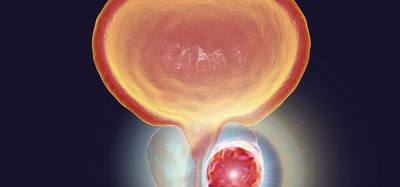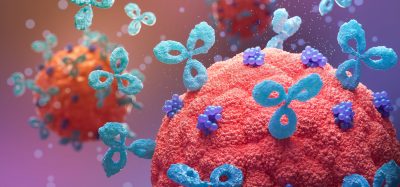Prostate cancer: delaying resistance to hormone therapy
Posted: 7 August 2024 | Drug Target Review | No comments yet
Researchers have developed a new form of immunotherapy that could provide a longer life expectancy to men with prostate cancer.


Scientists at the University of Sheffield have discovered a novel form of immunotherapy that could provide a longer life expectancy for men with prostate cancer. Funded by Prostate Cancer-UK, the study demonstrates that activating immune cells with nanoparticles to kill cancer cells delays resistance to first-line treatment.
Androgen deprivation therapy (ADT) is a potent first-line treatment for thousands of men diagnosed with prostate cancer, but despite it being initially effective against the growth and spread of cancer, some tumours develop resistance. The significant success that immunotherapy has shown for other cancers has not yet translated into prostate cancer.
Therefore, the team used cutting edge-techniques to investigate how immune cells function within prostate tumours, particularly following ADT, resulting in the development of an entirely novel method to deliver immunotherapy. The work is the first to demonstrate that precisely designed nanoparticles can be used to stimulate T cells to combat cancer cells, which notably delayed the onset of resistance to ADT.
Professor Claire Lewis, from the University of Sheffield’s, School of Medicine and Population Health, led the study. She commented: “Until now, immunotherapies for prostate cancer have been disappointing, with few men responding well to treatment. Carefully analysing the way that immune cells in prostate tumours are inhibited by hormone treatment helped us to develop a way to overcome this and prevent resistance to hormone therapy.”
“We’re excited by the potential of this new form of immunotherapy to enhance the response of prostate tumours to hormone treatment. We are now working with our clinical colleagues to explore ways to take this forward into clinical trials as soon as possible,” Lewis continued.
The teams’ analysis identified that macrophages accumulate in large numbers around blood vessels in prostate tumours during ADT. Nanoparticles were then generated to selectively deliver a drug that prompts the macrophages to express interferon-beta. The release of interferon-beta inside tumours stimulates T cells to kill cancer cells, delaying treatment resistance.
Dr Hayley Luxton, Research Impact Manager at Prostate Cancer UK, said of the treatment: “It will be really exciting to see how it performs in future clinical trials, and we hope it will play a pivotal role in finally unlocking the potential of immunotherapy for men with prostate cancer.”
This study was published in BMJ.
Related topics
Cancer research, Immuno-oncology, Immunotherapy, Oncology, T cells
Related conditions
Prostate cancer
Related organisations
Prostate Cancer UK, The University of Sheffield








